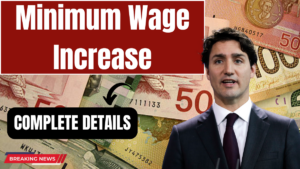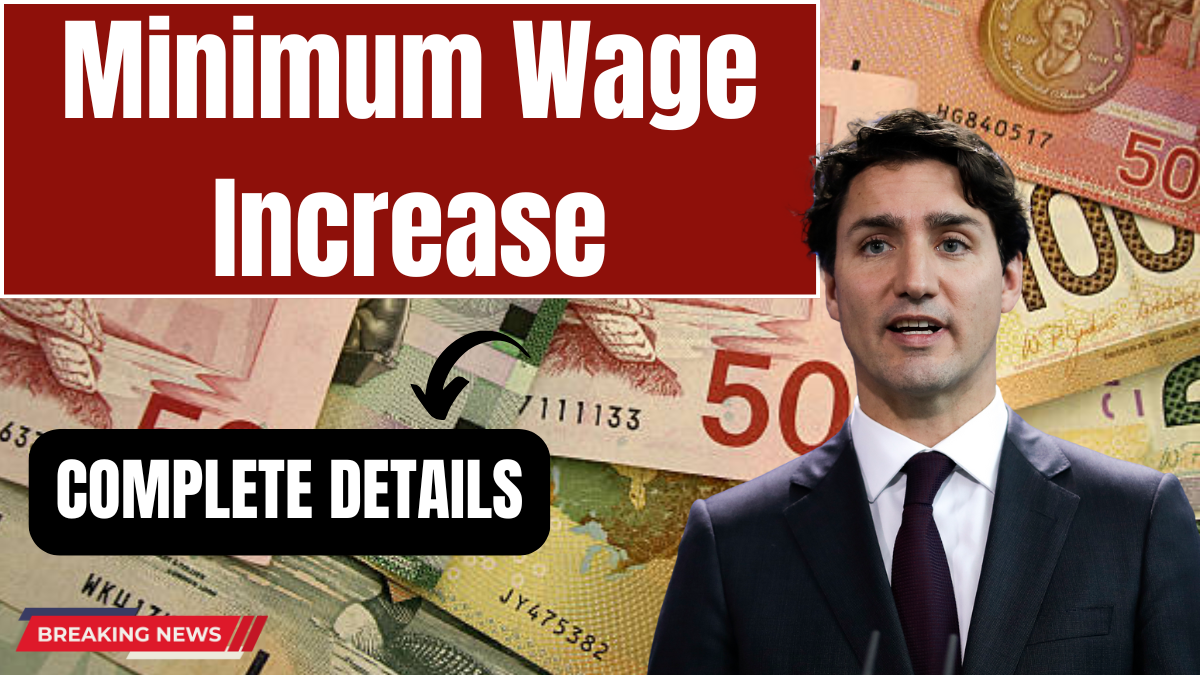As the cost of living continues to climb, several Canadian provinces and territories are increasing their minimum wage in 2025 to support workers and maintain economic fairness. These adjustments are vital in helping workers across Canada keep up with inflation, especially in sectors with traditionally lower pay like hospitality, retail, and food service.
Each region determines its own wage rate based on local economic needs, and many have already announced official increases scheduled for 2025. Below is a breakdown of provinces planning wage hikes and what workers can expect in terms of improved pay and living conditions.

New Minimum Wages by Province – Effective 2025
Several provinces and territories have released details on their minimum wage hikes scheduled to begin this year. Here’s a detailed look at who’s getting an increase and when:
| Province/Territory | Current Wage | New Wage | Effective Date |
|---|---|---|---|
| New Brunswick | $15.30 | $15.77 | April 1, 2025 |
| Nova Scotia | $15.00 | $15.40 | April 1, 2025 |
| Newfoundland & Labrador | $15.60 | $15.91 | April 1, 2025 |
| Yukon | $17.59 | $17.97 | April 1, 2025 |
| Quebec | $15.75 | Updating soon | May 1, 2025 |
| British Columbia | $17.40 | Updating soon | June 1, 2025 |
| Northwest Territories | $16.05 | Updating soon | September 2025 |
| Ontario | $17.20 | $17.82 | October 1, 2025 |
How Canada’s Minimum Wage System Works
Each province and territory is responsible for setting its own minimum wage, considering economic factors like inflation, cost of living, and local labour needs. While a federal minimum wage exists, it only applies to workers in federally regulated industries such as banks, postal services, and interprovincial transportation.
Increases to both federal and provincial minimum wages are typically linked to the Consumer Price Index (CPI), ensuring wages grow alongside inflation and don’t lose purchasing power over time.
Why Are Minimum Wages Rising in 2025?
There are several key reasons driving the increase in minimum wages across Canada this year:
-
Rising Cost of Living: Food, housing, and basic utilities have become more expensive, and stagnant wages haven’t kept up.
-
Wage Inequality: Low-income earners, especially in service and hospitality sectors, have long struggled to meet basic needs. Wage increases aim to close this gap.
-
Economic Stability: Fair pay helps reduce financial strain on workers, leading to stronger consumer spending and local economic growth.
-
Labour Retention: Higher wages can help businesses attract and retain workers in competitive markets.
National Minimum Wage Overview
The average minimum wage across Canada is estimated to reach $17.30 per hour in 2025. However, the actual rate varies widely by province. These efforts are part of a broader national policy to ensure fair compensation in an era of steep inflation and growing costs.
Why These Changes Matter for Workers
Increasing the minimum wage helps ensure workers:
-
Can afford basic necessities like food, housing, and transportation
-
Maintain stable employment and reduce job switching
-
Experience improved quality of life and access to better healthcare and education
-
Build stronger financial independence, especially for younger and lower-income Canadians
FAQs
What is the average minimum wage across Canada in 2025?
The national average is estimated to be around $17.30/hour, though this varies significantly between provinces.
Who sets the minimum wage in Canada?
Each province or territory sets its own minimum wage, while the federal government sets a base wage for federally regulated industries.
Why are minimum wages increasing this year?
To help workers cope with inflation and the rising cost of living, and to ensure fair pay for essential and low-income workers.
When will Ontario’s new wage go into effect?
Ontario will raise its minimum wage to $17.82/hour starting October 1, 2025.
Are wage increases linked to inflation?
Yes. Most wage increases are tied to the Consumer Price Index (CPI) to maintain purchasing power.
Do all workers get the new minimum wage?
The wage applies to most hourly workers. However, exceptions may exist for certain roles or industries, especially in federally regulated sectors.
Click here to know more.
Aanchal is a passionate writer with a keen interest in storytelling, content creation, and creative expression. She enjoys exploring diverse topics and crafting engaging narratives that captivate readers.

